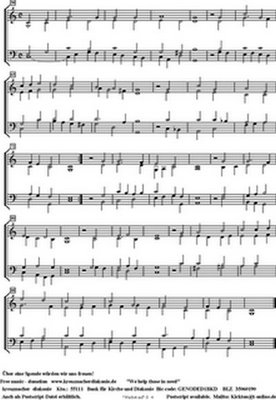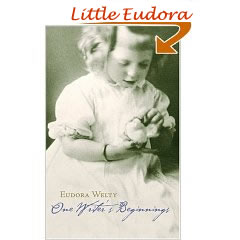“I am able to make from the springboard the great leap whereby I pass into infinity, my back is like that of a tight-rope dancer,. . . hence I find this easy; with a one-two-three! I can walk about existence on my head.”—S. Kierkegaard—
Fear and Trembling—
Problemata: Preliminary ExpectorationDear Soren,
Geehaw, this is harder than I thought. I’m just trying to explain in 45 words or less my view of which people get damned to hell and why. How come that is so difficult? Next thing I’ll be talking about angels on the head of a pin, to describe some nuance of the subject.
If only you were here to interpret for us.
But I’ll try to take a pitch at the target, and when I throw, it is always back to you existentialists. Camus says, (The Plague in the voice of Tarrou) “Query: How contrive not to waste one’s time? Answer: By being fully aware of it all the while. Ways in which this can be done: By spending one’s days on an uneasy chair in a dentist’s waiting room; by remaining on one’s balcony all a Sunday afternoon; by listening to lectures in a language one doesn’t know; by traveling by the longest and least convenient train routes, and of course standing all the way; by lining up at the box office of theaters and then not buying a seat; and so forth.”
We really do walk about existence so easily, insentiently, but to springboard to infinity, ah, that is not the same. And Camus’ suggestions, though giving us a little consciousness, don’t quite jettison us out of the temporal.
I want meaning to my time. I want eternity in my time.
That is, I believe,
not opposable thumbs, what makes me human. That should be in the creeds. “I believe that human moments in time hold eternal significance.”
In Paul Tillich’s cluster of sermons entitled,
The Eternal Now, chapter entitled
The Good That I Will, I Do Not, he says, “. . . Sin is a picture full of ugliness, suffering and shame, and, at the same time, drama and passion. It is the picture of us as the battleground of powers greater than we. It does not divide men into categories of black and white, or good and evil. It does not appear as the threatening finger of an authority urging us—do not sin! But it is the vision of something infinitely important, that happens on this small planet, in our bodies and minds. It raises [hu]mankind to a level in the universe where decisive things happen in every moment, decisive for the ultimate meaning of all existence. In each of us such decisions occur, in us, and through us. This is our burden. This is our despair. This is our greatness.”
And, could I add, this is our portal to life eternal?
Have you ever used Flash*? Oh, of course not, no computers in the 1800’s. Well, Macromedia Flash is a timeline-driven software. It is harder to learn to use than, say Adobe PhotoShop or Microsoft Word or even AutoCad. It is not just three dimensional, it is four dimensional. It allows for change over time. A circle morphs into a cube. A video plays with music, etc. When constructing a Flash movie, a designer assigns a purpose to each frame, each moment on the timeline. And while working on a project there is a little red slider that can be pulled, now forward, now back, into the Flash future, back to the Flash past, with a flick of the mouse.

Click hereAnd when we test our projects we watch that red slider glide through the events. If we see a mistake on the stage (that is what the workspace is actually called) we try to catch that slider. STOP. Stop. We want to change that frame. Make it right.
I’ve digressed it seems for a simple point. Would that we all had sliders to catch and draw back our lives to points in time that we regret, that run through our heads over and over. Bad playbacks. Damnable moments. Damned moments. So when I deal with exclusivism, it's not primarily the question, "who is excluded from salvation?" but "am I wholly excluded from damnation?" And my answer is no, I am not.
Is it possible that each of our moments hold the potential for salvation or damnation? We either embrace the grace extended to us or curse it. Am I saved? Is my soul saved? Am I damned? Is my soul damned? Yes. Yes. Yes. Yes. How can I believe that it is not all so. I know my heart and I know my moments. I believe that God’s grace has saved me, that I have drunk from “a spring of water welling up to eternal life.” God has revealed that salvation in eternal moments. But also, "The good that I will, I do not," (Romans 7) And,“Blessed is the [hu]man who perseveres under trial, because when he has stood the test, [s]he will receive the crown of life that God has promised to those who love him.” (James 1:12) And, “You see that a person is justified by what [s]he does and not by faith alone. In the same way, was not even Rahab the prostitute considered righteous for what she did when she gave lodging to the spies and sent them off in a different directions? As the body without the spirit is dead, so faith without deeds is dead.” (Did Rahab have to sign off on a creed before God declared her righteous?) Eternal life, begins in our every day existence. When we refuse the salvation of the Lord in our todays, we refuse it for the eternity that our todays could have been. When we do not love our neighbor today, we close that portal to eternity. When we do not house that spy today, we have entered into a damnation of that which had potential for the eternal. Grace is extended to us, all of us, not just once, at the beginning of a spiritual journey, not just at the crisis of a testimony, but at every turn. We have but to receive it. Likewise, we have but to reject it.
I am a Christian. And I do believe that it is the grace of Jesus Christ I’m talking about here. And I suspect that this grace is very wide indeed, extending at least the breadth of an
EOC statement. And I praise God that mercy eternal has been mysteriously extended to me, and consciously so, in the unity and diversity of my soul.
Soren, your thoughts often leave me in the dusky dust. I do not always understand. I am like a rope on the Goodyear blimp. Sometimes it feels like I’m holding on for dear life, just reading your ideas. Yet your thoughts have helped lead me to these thoughts. And it is my thoughts, not yours, that must, in the end, make sense to me. So I’ll continue to read and think and baby step.
Betsy
*Click here for a very fun
presentation of Flash in Flash.





























